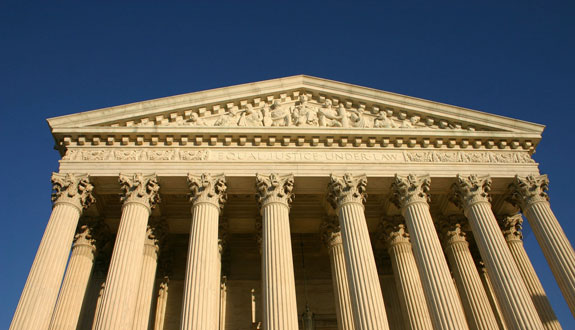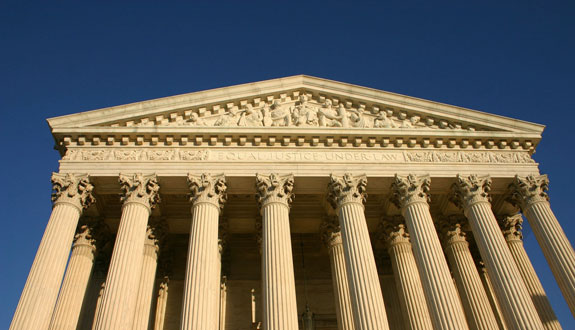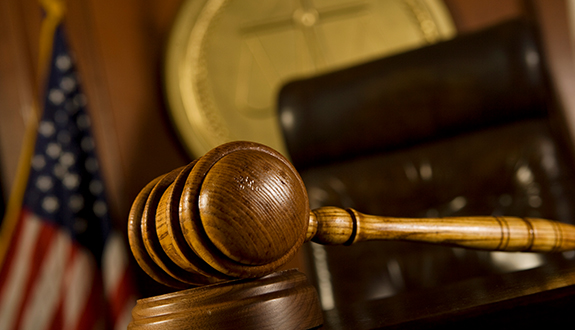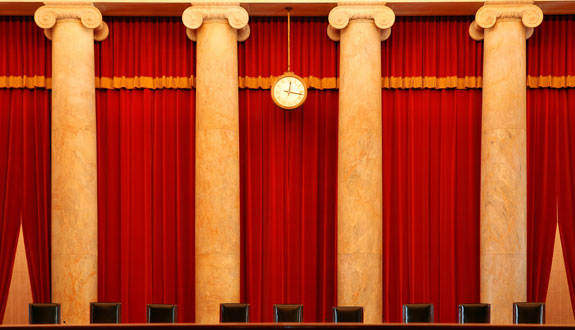
In the never-ending, poorly acted Kabuki theater that is national politics these days, we’ve seen senator after senator — Republican and Democrat alike — chew the scenery over a replacement for late Supreme Court Justice Antonin Scalia. Democrats — President Obama included — make the point that the Constitution is pretty clear about what’s supposed to happen when a Supreme Court Justice dies. Republicans, alternatively, point to the fact that the ideological balance of the court is sure to change radically with any nominee Obama appoints because there’s just no way that he’s going to appoint anyone nearly as conservative as Scalia. Fair enough, although we can all hopefully agree that’s not a Constitutional argument.
Up until Wednesday, though, these were abstract considerations. We now have a nominee — 19-year DC Circuit Court of Appeals veteran judge Merrick Garland — and so we can do a before and after comparison, i.e. what the Court looked like with Scalia, and what we can expect with Merrick Garland as his replacement. So let’s look at a few things that are important.
1. Judicial Philosophy
Antonin Scalia was a fervent advocate, although not 100% consistent practitioner of, the doctrine of Originalism. In brief, what this means is that Constitutional provisions must be construed in terms of the norms in place at the time of ratification. One of the giant battlegrounds here has always been the Equal Protection Clause of the 14th Amendment. One of the so-called Civil War Amendments, that provision passed in 1868, declaring broadly that nobody in any jurisdiction can be denied “equal protection of the law.” Famously, and quite recently, Scalia referred to the circumstances surrounding the adoption of the 14th Amendment in his dissent in Obergefell v. Hodges, the case that made gay marriage legal in all 50 states. The Framers of that Amendment certainly wouldn’t have agreed that this Amendment extended to gay marriage, and, for Scalia, that’s the end of the analysis.
So, what about Merrick Garland’s judicial philosophy? Well, I don’t know if anyone’s asked, but it doesn’t seem likely that Garland — or anyone else Obama would appoint for that matter — would subscribe to Scalia’s Originalism. Garland’s 19 years on the bench provide plenty of opinions to look at. What makes that record difficult to assess is that Garland’s time has been spent on the DC Circuit, which takes up most of its time with cases involving the scope of power of federal agencies. The practical effect is that Garland has largely been insulated from cases on hot button issues like abortion or gay marriage. To the extent that we can divine a judicial philosophy, it’s one of deference to federal agencies.
In a way, these two philosophies share something in common: a call for judicial restraint. Scalia’s Originalism and Garland’s deference both purport to strictly limit the latitude of judges. In another respect, however, they’re polar opposites. Originalism gives the judge the latitude to aggressively strike down laws and regulations that fall outside a narrow understanding of the Constitution, and deference is just the opposite.
2. Temperament
Here, the distinction couldn’t be more striking. Scalia is famous for his acerbic wit and propensity to antagonize counsel, parties, and especially his colleagues on the Court. Former Justice Sandra Day O’Connor was famously a repeated target of Scalia’s poison pen attacks. While his admirers found his brashness refreshing, others have noted that Scalia ended up in the minority more often than he might’ve otherwise by alienating natural allies.
Merrick Garland on the other hand seems to have never made an enemy in thirty years of public service. This, perhaps, has something to do with his nomination. Obviously, Obama thinks he’s qualified to serve, but the warning to Senate Republicans is clear. Opposition to a qualified, centrist, well-liked guy will look to voters like rank obstructionism.
3. Effect on the Court’s Diversity
This is, more or less, a wash. Antonin Scalia was a white, Catholic man. Merrick Garland is a white, Jewish man. None of those identifiers – white, male, Catholic, Jewish – is in any way underrepresented on the Court. Obama has pushed the Court toward diversity in his time, nominating the third and fourth women to the Court, one of them Hispanic.
In short, the changes to the Court will be ideological and personal, rather than a result of identity.
——-
One last word on this. Republicans have insisted that no Obama nominee will get a hearing, much less a vote. Rather, the next president will nominate Scalia’s successor. It’s looking increasingly like that will either be Hillary Clinton — and she may go farther to the left with four long years remaining on her term — or Donald Trump. Wonder who he’d nominate. Judge Judy may be a little tame for his tastes.




